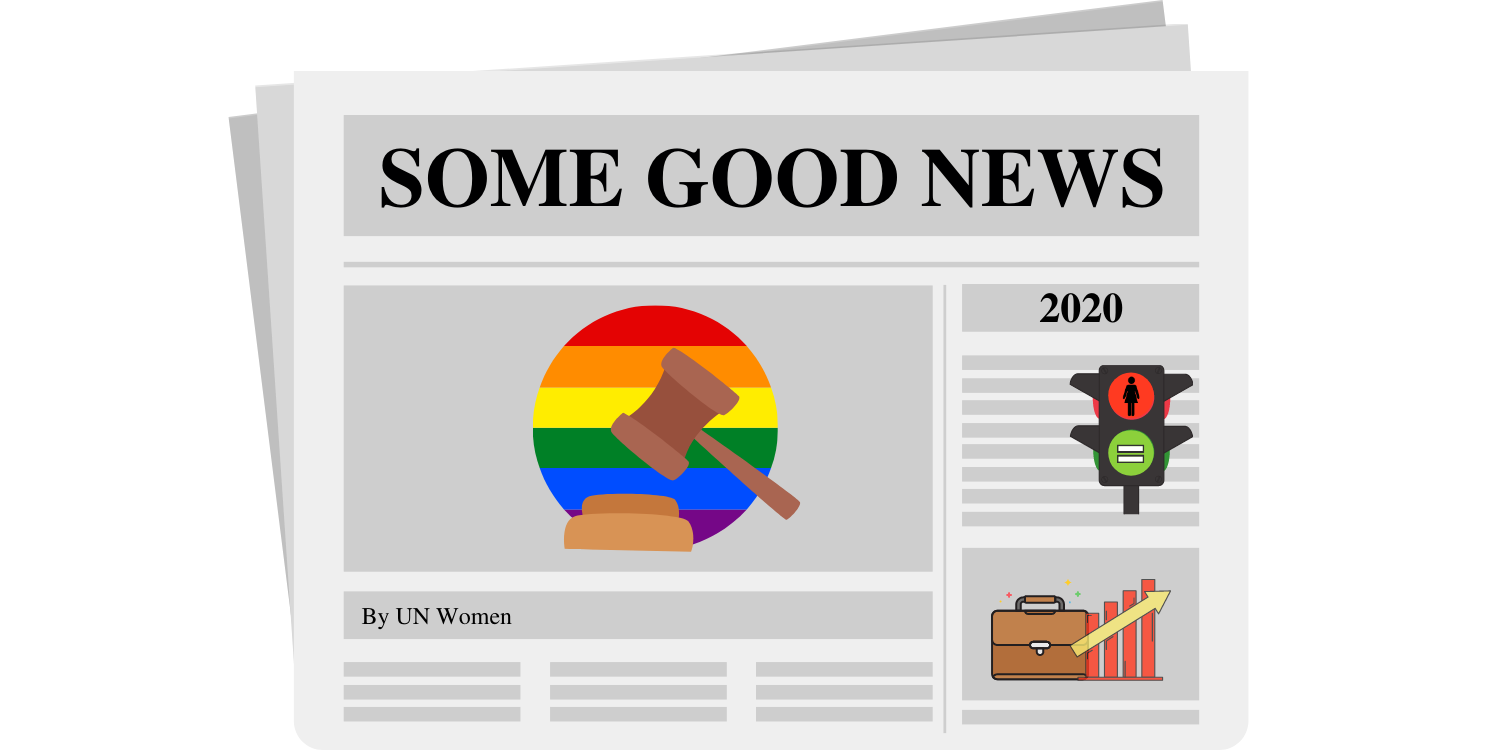Some good news about gender equality that you may have missed
Date:
Originally published on Medium.com/@UN_Women

As COVID-19 has impacted all aspects of life around the world, it’s dominated news cycles and taken up most of our attention and energy. The pandemic has also shed more light on existing and increasing gender inequalities, such as unequal division of unpaid care work in our homes and domestic violence. While these urgent needs remain at the forefront of our thoughts and actions, today we want to take a moment to also celebrate some milestones that we achieved in summer of 2020.
Join us in celebrating some of the highlights for gender equality and women’s rights you may have missed over the last few months.
1) Sudan criminalized Female Genital Mutilation
In May, Sudan’s Government approved an amendment to the criminal law that effectively bans the practice of Female Genital Mutilation.
Great news! Sudan has criminalised female genital mutilation, making it punishable by jail.
— UN Women (@UN_Women) May 1, 2020
This marks a step closer to an equal world for all.
v @BBCNews #GenerationEqualityhttps://t.co/CHReh4lJFD
Anyone who performs FGM, either in a medical facility or outside, faces three years’ imprisonment and a fine.
2) US Supreme Court ruled that Civil Rights Law protects gay and transgender workers
In June, The United States Supreme Court ruled in favour of a civil rights law to protect gay and transgender workers from discrimination.
The ruling stated that the original Civil Rights Act of 1964, which outlawed discrimination based on sex, also applies to discrimination based on sexual and gender identity.
3) New Zealand passed a bill to ensure equal pay
While an existing New Zealand law guaranteed women and men are paid equally for the same work since 1972, this year’s Equal Pay Amendment Bill focuses on pay equity and takes on some of the persistent causes of the gender pay gap: low pay and under-valuing of female dominated industries.
#ICYMI: New Zealand’s parliament has unanimously passed an #EqualPay Amendment Bill that ensures workers are not paid less because of their gender. 👏👏 via @GlblCtznhttps://t.co/K0QYAHJ7EP
— UN Women (@UN_Women) August 16, 2020
The legislation, passed in July 2020, will ensure that women and men are paid equally for work that’s different but has equal value, including in chronically underpaid female-dominated industries. The new law makes it easier for workers to file complaints about pay inequity and sets guidance on comparing pay across fields with similar skills and responsibilities.
4) Mumbai traffic lights got more inclusive
Traffic lights in Mumbai got a makeover with the addition of a female figure rather than typical male stick figure.
Here's #SomeGoodNews! 🚦 Mumbai is changing some of its traffic lights to be gender inclusive. 🚦 via @CNNStylehttps://t.co/6vCHS6i2ut
— UN Women (@UN_Women) August 6, 2020
The new more inclusive lights aim to challenge public perceptions, call attention to the subconscious exclusion of women, and promote women’s representation in all public spheres.
5) The number of female CEOs in the Fortune 500 hit an all-time record
The Fortune 500, a ranking of America’s largest companies, reached a new record for women leaders in 2020, with 37 of the companies being led by women, as compared to 33 last year.
The new high for women leaders marks a continuing trend of more women CEOs, and while that still makes for less than 10 per cent of female leadership at the Fortune 500, it’s a trend we want to celebrate and accelerate, since just 20 years ago, there were only two women CEOs of Fortune 500 companies.
6) Costa Rica legalized same-sex marriage
Costa Rica became the first country in Central America, and the sixth in all of Latin America, to legalize same-sex marriage.
A constitutional court had already ruled in favor of marriage equality in 2018, and the ban officially lifted 18 months later, in May of 2020.